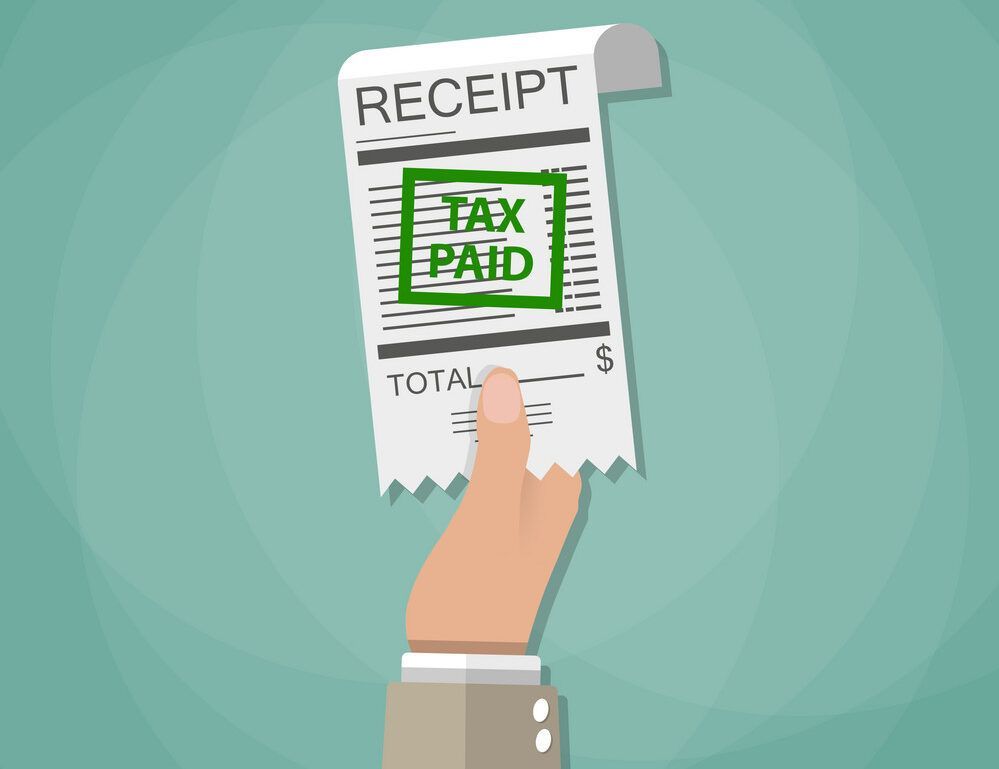13 Steps for Challenging a Tax Decision
In most cases, tax returns, whether for businesses or individuals, are accepted as filed by the taxpayer to Challenging a Tax Decision. However, there may be instances where the Canada Revenue Agency (CRA) rejects the return and imposes additional charges. This can occur due to miscalculations, administrative errors, or disputes over claimed deductions, especially during a company audit.
When a Notice of Assessment or Reassessment is issued, taxpayers may contest any higher tax assessments through certain procedures. It is advisable to seek the assistance of a professional, for challenging a tax decision preferably the accountant who prepared the return or an experienced tax auditor who knows how to challenge reassessments and has worked with CRA tax auditors for many years.
The deadline for Challenging a Tax Decision notice of objection
Typically, taxpayers have until April 30th of the following year to submit a Notice of Objection to a Notice of Assessment or Reassessment. For prior tax years, there is a 90-day window from the date the Notice of Reassessment was mailed. However, since this date is subject to change, it’s best to confirm with an experienced Ontario tax lawyer. Corporate taxpayers must submit a formal Notice of Objection within 90 days of the date the Notice of Assessment or Reassessment was mailed for challenging a tax decision. The first step in the appeals process is to file this Notice of Objection, which is required before any legal action can be taken and protects the taxpayer’s rights under the Income Tax Act.
If you miss the deadline to appeal, you can ask the Tax Court of Canada for an extension of time. For income tax and GST/HST, you have one year and 90 days from the date of confirmation, reassessment, or redetermination for challenging a tax decision to file an appeal. You must provide evidence to support your request for an extension, according to the official Canadian government website.
To be eligible for an extension, you must meet the following conditions within the appeal period: you couldn’t appeal or had someone else appeal on your behalf, for challenging a tax decision you intended to appeal, it’s fair to grant your application, you applied as soon as you could, and you have reasonable grounds for appealing.

1. How to File an Informal Complaint Against the Canada Revenue Agency (CRA)
If you receive a Notice of Assessment or a Notice of Reassessment from the CRA, your first step should be to contact them to understand the situation and begin an informal review process to Challenging a Tax. The CRA provides a list of phone numbers for taxpayers to use, depending on the situation, to facilitate this contact. If the issue is a simple one, such as a missing document that you can provide, it is likely that the matter will be resolved at this point. If not, a formal Notice of Objection must be submitted.
In this blog, we have covered the steps to dispute a tax decision. Typically, tax returns are evaluated as filed by the taxpayer to Challenging a Tax, but there may be instances where Revenue Canada may reject the return and impose further fees. To dispute the decision, a formal Notice of Objection must be submitted within 90 days of the date the Notice of Assessment or Reassessment was mailed.
If you are not satisfied with the CRA decision, you can start by asking what the problem is, and if it is not resolved, you can submit a formal Notice of Objection. It is important to provide evidence to support your claims throughout the dispute resolution process. If you face any challenges while filing taxes, seeking help from professionals is recommended.
2. The Federal Budget Summary: A Plan for Sustainable Economic Development and Innovation. However, Public Reaction is Disappointing.
The 2022 federal budget highlights two significant policy proposals aimed at boosting sustainable economic development and innovation. This budget is the first one after the 2021 elections, and the finance minister has focused on sustainable economic growth. The Canadian deputy prime minister and finance minister, Chrystia Freeland, released the 2023 federal budget summary titled “A Plan to Grow Our Economy and Make Life More Affordable.”
However, according to an article by the Canadian Union of Public Employees (CUPE), the public’s reaction to the 2022 budget summary is disappointing for challenging a tax decision. The budget did not address an important issue, for challenging a tax decision despite the economy growing faster than expected during the last year. Expenditure did not increase as much as it should have.
The federal budget covers several crucial areas, including affordable housing, climate change, economic growth and innovation, employment, public healthcare, a fair tax system, a planned borrowing strategy, and fiscal and economic estimates.

3. Affordable Housing: Finance Minister Chrystia Freeland’s Plans to Address the Housing Shortage in Canada
The shortage of affordable housing in Canada is a major issue, and Finance Minister Chrystia Freeland has focused on addressing this problem by providing affordable and cheap houses to Canadians. One solution is to limit the number of houses that individuals can buy. To further address this issue, for challenging a tax decision Budget proposes the establishment of the Housing Accelerator Fund, for challenging a tax decision which would receive $4 billion over five years, starting from 2023-2024. The Fund would be adaptable to the requirements and realities of cities and communities, providing assistance such as annual per-door incentives or up-front funding for improvements in municipal housing planning and delivery systems, which would accelerate the creation of housing.
Additionally, Budget 2022 proposes to allocate $1.5 billion over two years, starting from 2022-2023, to extend the Rapid Housing Initiative and ensure that additional affordable housing can be created quickly. At least 25% of these funds will go to housing projects that focus on serving women, which is anticipated to result in the construction of at least 6,000 new affordable housing units. The government also plans to help Canadians buy their first home, provide safety and rights to renters and buyers, and decrease construction costs to make housing more affordable.
4. National Housing Strategy: Renewed Rapid Housing Initiative to Create 6,000 Units and Low-Interest Loans for Affordable Rentals
The government has renewed the Rapid Housing Initiative with a proposed allocation of $1.5 billion over two years, beginning in 2022-2023. The aim is to create 6,000 new affordable housing units, with at least 25% of the funds going to housing projects that focus on serving women. In addition to this, low-interest, forgivable loans will be provided to builders who are constructing rental houses at affordable rates. These measures are part of the National Housing Strategy to address the shortage of affordable housing in Canada as Challenging a Tax Decision.
5. Cooperative Housing Strategy: $500 Million Allocated for Co-Operative Housing Development Program and $1 Billion for Cooperative Housing Loans
The government has proposed a cooperative housing strategy that includes the Co-Operative Housing Development Program with a budget allocation of $500 million for challenging a tax decision. Additionally, loans totaling $1 billion will be provided for the construction of cooperative housing. These measures are part of the government’s efforts to address the shortage of affordable housing in Canada through various initiatives and strategies.
Also Read: CRA Verification: A Step-by-Step Guide
6. New Initiatives for Home Buyers: Home Buyer’s Bill of Rights and Home Buyer’s Savings Account
The government is introducing new initiatives for home buyers, including the development of a Home Buyer’s Bill of Rights for the Canada Mortgage and Housing Corporation (CMHC) for homes up to around $5 million. Additionally, a Home Buyer’s Savings Account is being introduced, allowing Canadians to save up to $40,000 with tax benefits. These measures aim to provide more protection and support for home buyers, for challenging a tax decision especially those who may face financial challenges in the process of purchasing a home.
7. Federal Budget: Ban on Foreign Property Buyers and Support for Climate Change Initiatives
The finance minister has proposed a two-year ban on foreign commercial enterprises and individuals from buying property in Canada, as part of efforts to make affordable housing more accessible to Canadians for challenging a tax decision. In addition to this, the government has promised to support a worldwide transition to a clean economy in the fight against climate change.
The 2023 bill includes incentives for the growth of new innovative technology, utilization of carbon capture and storage, and funding for electric vehicles, green skills, and infrastructure for renewable energy sources. The government will invest $15 billion in decarbonization initiatives to ensure a safe and healthy environment. These measures are expected to accelerate the modernization of Canada’s energy and transportation infrastructure while creating sustainable jobs.

8. Government Commits to National Network of Zero-Emission Vehicles in Renewables Push
As part of its efforts to promote renewable energy, the government has pledged to invest in a national network of zero-emission vehicles. Over the next five years, the project will receive $1.7 billion in funding for challenging a tax decision, aimed at encouraging Canadians to purchase more affordable zero-emission vehicles such as electric cars, vans, motorcycles, and buses. This initiative also seeks to protect Canada’s natural resources, including its sea, land, and lakes.
9. Boosting Economic Development and Innovation: Key Priorities in Budget
Canada’s long-term success is contingent on economic development and innovation. Budget 2022 reflects this by investing in early learning and childcare, which has the potential to increase real GDP by up to 1.2% over the next few years. The budget also includes other essential investments to strengthen and diversify the Canadian economy. The Canada Growth Fund will provide $10 billion to support productivity and Canadian businesses, for challenging a tax decision which will create thousands of good jobs.
Additionally, to take advantage of the growing demand for minerals and generate employment opportunities, the government has allocated $3.8 billion to implement Canada’s first critical mineral project.
10. Employment:
The budget does not include any additional pandemic benefit enhancements. Despite the employment crisis caused by the pandemic, the budget predicts a decrease in Employment Insurance (EI) payments. However, investing in sectors that provide good middle-class jobs and improving supply chains can increase our economy’s resilience for challenging a tax decision. The federal government also plans to provide training and other benefits for employees to support economic development.
11. Dental Care:
The government has pledged to invest $5.3 billion over the next five years and an additional $1.7 billion after that for a universal dental care program. This program will provide free dental care to individuals under the age of 12 and those with disabilities. However, it is only available to families earning less than $90,000 a year for challenging a tax decision. Canadians earning less than $70,000 will not have to pay any co-payments.
12. Fair tax system
A fair tax system is a key component of the budget, which includes measures to combat tax evasion and international crime. One of these measures is the creation of a public, for challenging a tax decision searchable register of the beneficial owners of corporations and trusts. CUPE has been part of a coalition advocating for changes to Canada’s tax transparency rules to prevent criminal activity and tax evasion.
However, the budget does not address other important tax equity proposals, such as increasing tax rates for corporations or implementing a new wealth tax.

13. Defense and Security
The Canadian government plans to increase defense spending by $8 billion over the next 5 years, bringing Canada’s defense budget to 1.5% of GDP, according to Budget for challenging a tax decision. This increase in spending includes assistance to Ukraine, as requested by NATO members.
In addition, the budget allocates $100 million over the next 6 years to improve Canada’s leadership in the armed forces. This funding will be used to modernize the military justice system and promote cultural changes in the Canadian Armed Forces (CAF). Furthermore, the government has pledged to spend $875 million over 5 years on addressing cyber threats and crime.
There were differing opinions among Canadians regarding the government’s 2022 budget. Some believed that the administration had worked hard to create a progressive and innovative budget in the aftermath of the COVID-19 pandemic. The budget prioritized key areas such as affordable housing, climate change, and transportation, among others for challenging a tax decision. In this blog post, I have discussed various initiatives such as affordable housing programs, healthcare, defense and security, and a fair tax system for challenging a tax decision that the government plans to invest in over the next five to six years.
By reading this post, readers can gain insight into where the federal budget will be allocating funds and the benefits that they can expect.
The post 13 Steps for Challenging a Tax Decision appeared first on DBM Accounting | David B. McKeand Professional Corporation.











